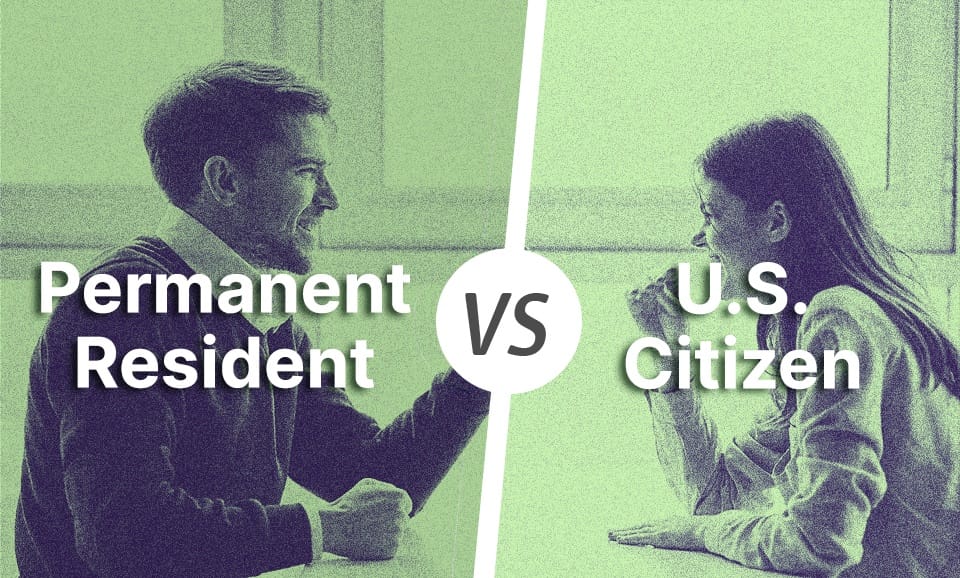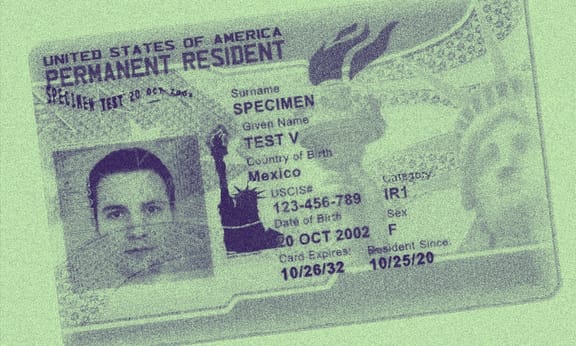For many foreign nationals living in the United States, obtaining a Green Card marks a major milestone—but it is not necessarily the final step. Lawful permanent residency (LPR) allows individuals to live and work in the U.S. indefinitely, but it also comes with specific rights, limitations, and responsibilities that differ substantially from those of full U.S. citizenship.
Understanding the legal, political, and practical distinctions between these two statuses is essential for anyone building a long-term future in America.
What Is a Lawful Permanent Resident?
A lawful permanent resident—commonly known as a Green Card holder—is someone authorized to live and work permanently in the United States. Most Green Cards are granted through family sponsorship, employment-based petitions, or humanitarian programs such as asylum. Others, like EB-5 immigrant investors, obtain theirs through economic contributions.
Green Card holders enjoy many of the same benefits as U.S. citizens, including:
- The right to reside and work indefinitely in the United States
- Access to public education and certain government benefits
- The ability to apply for U.S. citizenship after meeting residency requirements
However, permanent residency remains an immigration status, not full citizenship—and it can be revoked in certain situations, such as long absences abroad or serious legal violations.
U.S. citizens either acquire their status by birth or through naturalization, a process available to permanent residents who meet specific eligibility criteria.
Citizenship represents full membership in the United States and carries both rights and duties—including the oath of allegiance to the country.
U.S. citizens enjoy broader privileges, such as:
- The right to vote in federal, state, and local elections
- Access to U.S. passports and full consular protection abroad
- Priority when sponsoring family members for immigration
- Immunity from deportation in nearly all cases
Unlike permanent residency, citizenship is indefinite and cannot be lost unless obtained through fraud or renounced voluntarily.
Key Differences Between the Two
While Green Card holders and citizens share several overlapping rights, some critical distinctions shape daily life, travel freedom, and legal protection:
- Voting and Political Rights: Permanent residents cannot vote in elections or hold most elected offices, while citizens enjoy full political participation.
- Travel and Reentry: Green Card holders who stay abroad for more than six months may face questioning upon reentry; absences exceeding one year may even lead to loss of residency. Citizens, on the other hand, can travel indefinitely and reenter freely with a U.S. passport.
- Legal Protections: Green Card holders can face deportation if convicted of certain crimes or if they violate immigration laws. U.S. citizens are protected from removal in nearly all circumstances.
- Government Benefits and Employment: Some federal jobs, grants, and contracts require citizenship. Green Card holders are eligible for many, but not all, public benefits.
- Family Sponsorship: Citizens can sponsor a wider range of relatives—including parents, siblings, and married children—with shorter waiting times.
These differences often influence when or whether a permanent resident decides to pursue naturalization.
Legal Vulnerabilities and Responsibilities
Green Card holders, though protected by most U.S. laws, are still bound by specific immigration obligations.
Criminal convictions, immigration fraud, or failure to file taxes may trigger removal proceedings. Even prolonged travel abroad without reentry permits can be viewed as abandonment of residency.
U.S. citizens, in contrast, hold the highest level of legal protection. They cannot lose their citizenship for minor infractions and are not subject to immigration enforcement. However, citizenship also brings full civic responsibilities—such as jury duty and participation in democratic processes.
The Path to Naturalization
Most permanent residents can apply for U.S. citizenship after:
- Holding a Green Card for five years (or three years if married to a U.S. citizen)
- Maintaining continuous physical presence in the country
- Demonstrating good moral character
- Passing an English and U.S. civics test
While naturalization is optional, it often represents the most secure and empowering step for long-term residents. In addition to safeguarding against deportation, citizenship opens doors to new professional opportunities, expanded travel freedom, and greater influence in civic life.
Take a look at this blog too: What are the Benefits of the U.S. Citizenship?
When to Consider Citizenship
The decision to naturalize is both personal and strategic. Many choose to apply when they:
- Plan to live in the U.S. permanently and wish to participate politically
- Travel frequently and value the global protection of a U.S. passport
- Seek faster reunification with family members abroad
- Aim for job positions requiring citizenship or federal security clearance
- Want to secure their immigration status permanently
That said, some individuals prefer to retain only permanent residency—especially if their home country restricts dual citizenship or if they maintain strong ties abroad.
At Grape Law, we guide clients through every stage of the U.S. immigration process—from obtaining your first Green Card to achieving full citizenship through naturalization.
Our team understands that the decision to naturalize is not merely procedural; it’s deeply personal. That’s why we offer tailored strategies that align your legal options with your professional, financial, and family goals.
With a 97% approval rate and a multilingual team of over 100 professionals, we ensure that your transition from resident to citizen is handled with precision, transparency, and care.
📩 For personalized legal assistance, contact us at info@grapelaw.com.
Categories











